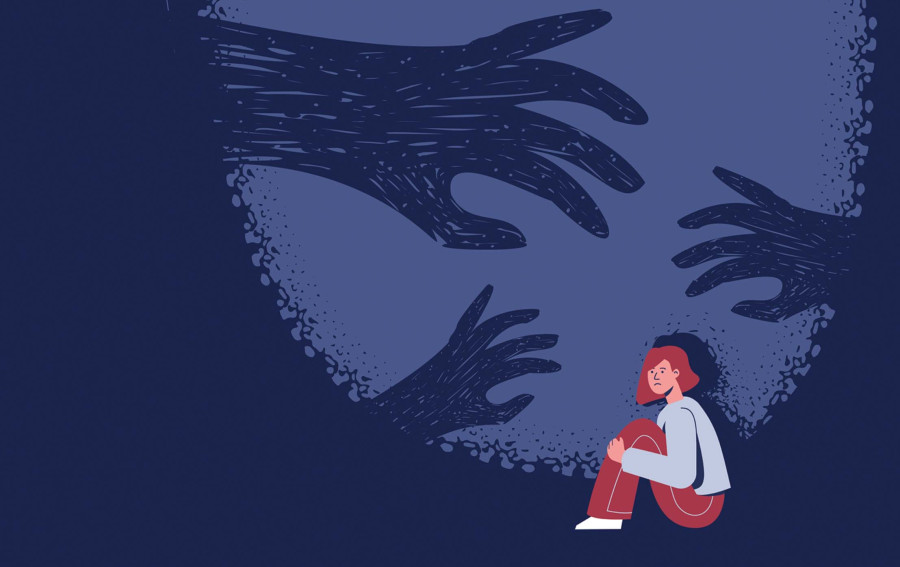Culture & Lifestyle
The connection between avoidance and fear
Fear makes us want to avoid things, and avoidance makes our fear stronger.
Dristy Moktan
Have you found yourself putting things off until the last minute or avoiding certain tasks altogether? Well, you might be familiar with the term procrastination. In simple terms, it’s the habit of unnecessarily delaying an important task.
But did you know that your tendency to avoid certain tasks for as long as possible might be linked to an underlying fear attached to it?
I myself was not aware of this until these past few weeks when I found out that I was constantly avoiding a task that has been on my to-do list for months. I kept occupying myself with other tasks so that I didn’t end up feeling guilty about not doing that “one” task. As days passed by, I could no longer avoid that feeling of shame and guilt. I tried to let go of the thoughts that were related to the task, not realising the actual reason behind doing so. When it continued for several months, I began to recognise the noticeable impact it was having on me. I decided to reflect on what was causing it rather than running away from it.
This was when I realised that avoiding that particular task was related to a fear that was lurking beneath my conscious awareness. To put it simply, fear is a natural emotion that helps us to avoid danger. But there are times when our fear becomes so powerful that it begins to take over and control our lives. This is when avoidance comes in. Avoidance is a coping mechanism that we use to protect ourselves from our fears. But avoidance can actually make our fears worse in the long run. This is because the more we avoid and ignore our fears, the bigger and scarier they become in our thoughts.
So why do we let our fears control us?
The relationship between fear and avoidance fascinates me. I’ve realised that uncertainty goes hand in hand when we talk about fear and avoidance. Our relationship with uncertainty might be an uncomfortable feeling. The majority of the tasks or activities that we will undertake in the coming days are loaded with uncertainty because we do not know what’s going to happen. While some people enjoy the idea of uncertainty and want to challenge themselves by stepping outside of their comfort zone, others may feel uncomfortable leaving their safe space. And because we don’t know what lies ahead of us, we may have a negative perception of the future, such as “What if I do not get the scholarship that I’ve applied for?”, “What if I mess up my presentation in front of everyone?”, and so on. These negative thoughts may hold us back from trying new things because we start associating them with fear. This fear, in turn, makes us completely avoid certain activities.
This is how fear and avoidance are linked. Fear makes us want to avoid things, and avoidance makes our fear stronger. It’s a vicious cycle that can keep us trapped in our comfort zones and prevent us from living our lives to the fullest.
Additionally, it is important to understand that when we avoid a task, the fear associated with it can be of anything. The fear we feel and the avoidance we create isn’t necessarily because of the task itself but it can be because of what transpired in the past. It's possible that we developed this fear because doing the same thing in the past resulted in negative consequences, so when we think about doing it again, we refrain from it.
Fear has a funny way of restraining us. It shows us, it reminds us how scary uncertainty can be. It keeps on pointing out all those things that can go wrong. And to avoid confronting the fear, we end up breeding more fear. But let's think about the what-ifs. What if all this fear is withholding us from everything that could go right in our lives? What if everything we have ever wanted is just behind that door we are so afraid to peek into? What if the future we desire is behind that one thing we fear? Change can be just one step away. And it is. What if everything goes the way we want, and we don’t let our fear and avoidance stop us? What if?
So, to win over these what-ifs in our heads, we have to break free from the vicious cycle of fear and avoidance.
The first thing we can do is recognise that we are avoiding certain things because we fear them. Because, more often than not, we don’t even realise that we are avoiding these things. We have to understand what is happening before we tackle what to do. We must acknowledge and accept that there is a fear, and only then can we work toward facing our fears.
As counsellors, we learn to dive into uncomfortable situations, explore and simultaneously understand how it feels. In the same way, we also learn fear and avoidance as necessary parts of certain situations and how they may later down the line lead to character development, growth, and increased hope and resilience in life. This perspective, focused on learning and understanding, can help all of us to tackle our fears in a much better way.
Breaking free from the shackles of fear and avoidance also requires being aware of the present moment. Trying mindfulness activities like deep breathing and meditation can help manage fear and anxiety. These practices teach us to handle uncomfortable emotions without feeling overwhelmed by them.
In the end, what we have to understand is that fear is not an emotion to be afraid of. It is something natural to us. It is telling us to be aware of the situation we are in, and it is trying to prevent us from leaving our comfort zone and doing something different, but the thing is always being in the comfort zone and avoiding everything else will never lead to growth we want to achieve. And, to grow, we have to face our fears always.
Moktan is a psychosocial counsellor at Happy Minds, a mental health and well-being platform.




 22.12°C Kathmandu
22.12°C Kathmandu















